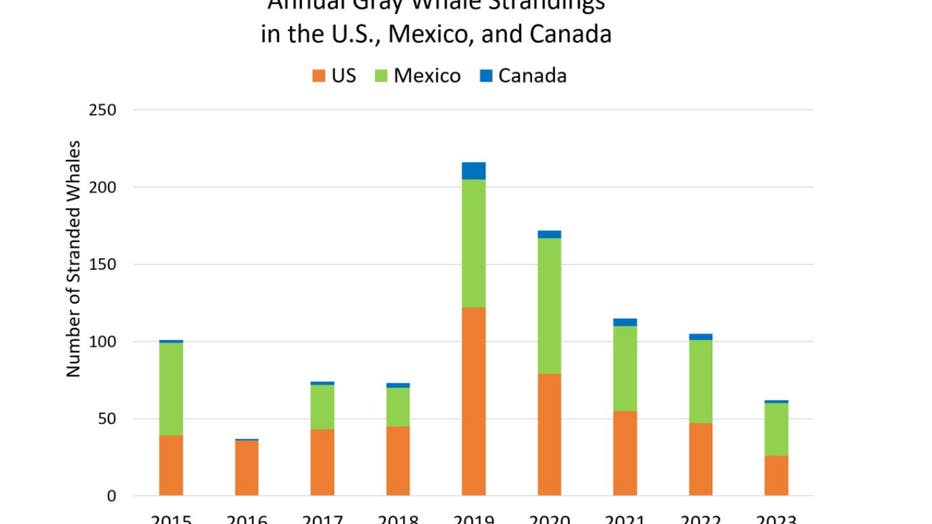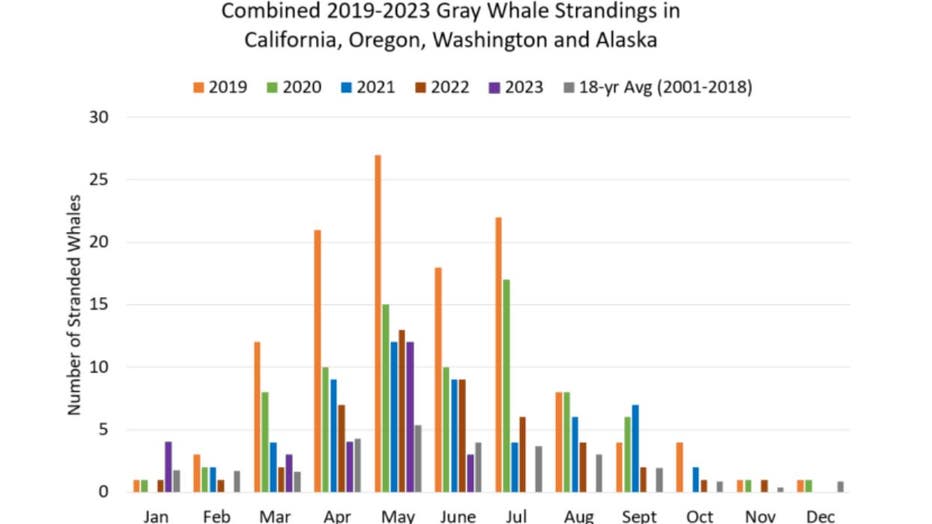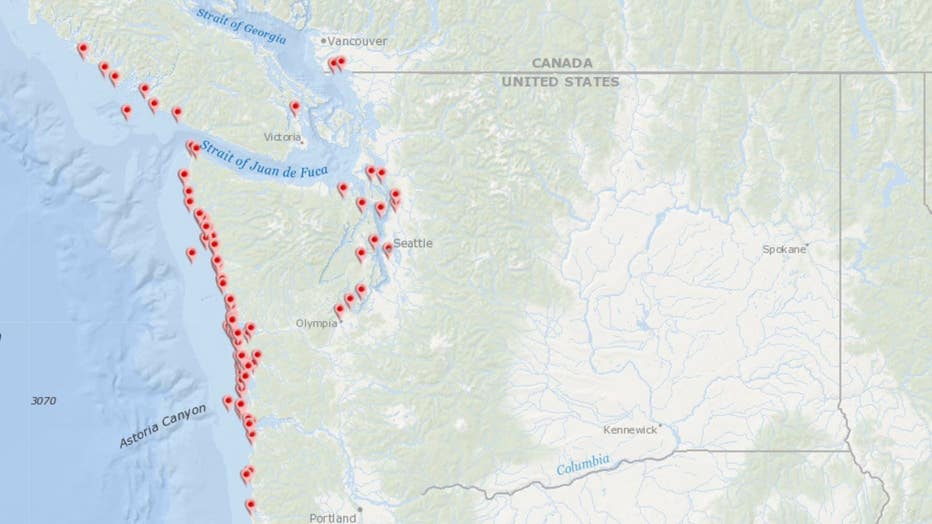Five more gray whales found dead along Washington's coast
A dead whale was found washed ashore along Washington's outer coast on Tuesday, the fifth gray whale stranding along Washington's coast this month alone.
Wildlife officials have been investigating an unusual rise in the number of gray whale strandings since 2019.
According to the National Oceanic and Atmospheric Administration (NOAA), there have been at least 100 gray whale strandings from Mexico through Alaska every year dating back to 2019. There have been 63 so far in 2023. NOAA has declared these whale strandings an Unusual Mortality Event (UME).
"These latest mortality events seem to leave us guessing what it means," said John Calambokidis, the founder of Cascadia Research Collective.
Calambokidis' group is regularly tasked to perform necropsies on the deceased whales in Washington. That includes measurements of size and weight, determining sex and taking samples to better understand the whale's condition.
There was a growing hope that the unusual mortality event was nearing its end, though this month's increase in mortalities could play a role in determining that. Washington would see 4-6 whale stranding in a normal year – we've seen that number in June alone.
"Our intensive monitoring is going to have to continue," said Calambokidis, noting that a past event had lasted two years. "We can't declare this one over yet. As it extends for longer, we are a little more concerned about these numbers."

NOAA Fisheries
The eastern North Pacific population of gray whales had been a success story. Decades of commercial whaling had decimated the population, pushing them to the brink of extinction.
After rebounding to a new high point, the population has dropped by nearly 40-percent over the past seven years. A NOAA report found that the total number of gray whales had dropped from 27,000 whales to 16,650 – a large portion of that drop tied to the ongoing unusual mortality event.
In 2019, there were 216 whale strandings reported from Canada through Mexico. In that same year, 34 were reported in Washington state. That number has started to gradually decrease throughout the years, though stranding remain above the normal numbers.
RELATED: Confusion rises over plans to bring Tokitae back to Puget Sound
Preliminary information has shown that a large number of whales were emaciated at the time of their deaths. The finding isn't consistent across all whales, so more research is being done.
Calambokidis told FOX 13 that two facts are clear: gray whales had rebounded to numbers we hadn't seen in many years, and that changes in climate have also created changes in historical feeding grounds. He noted that it's possible that a larger whale population is running into a lack of prey.
"To protect these whales it comes down to protecting things like their food resources," he said. "Protecting the world's climate and oceans from human-caused changes. These have repercussions that effect not just humans, but whales."

The majority of gray whale strandings occur the most between April and July.
RELATED: Inbreeding within Southern Resident killer whale adds to extinction threat
The latest report from Cascadia Research found that a female gray whale was found floating near Olympia earlier this month. The whale was towed to a suitable site, and biologists were able to find it had poor blubber condition, a lack of fat stored away and no food in it's GI tract. Similarly, a dead male gray whale later washed ashore near Ocean Shores – it had the same emaciated traits, but also showed some indications of additional injuries.

2019-2023 gray whale unusual mortality event dead animal locations (NOAA)
To view the NOAA's interactive map showing UME dead animal locations, click here.
As part of the investigation process, NOAA has created an independent team of scientists to work with the Working Group on Marine Mammal Unusual Mortality Events to review data, sample stranded whales and determine if any recent changes in the ocean’s ecosystem are playing a role in the deaths.


